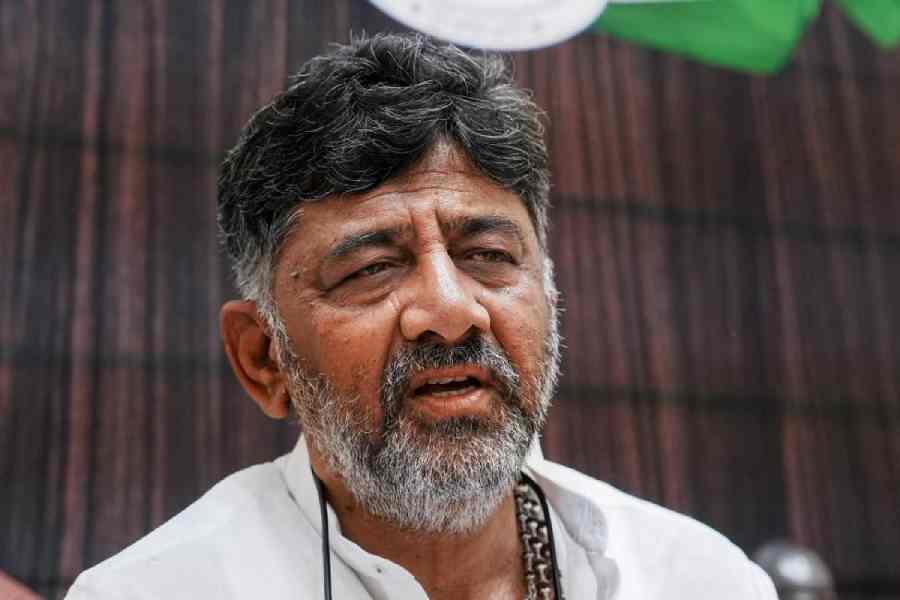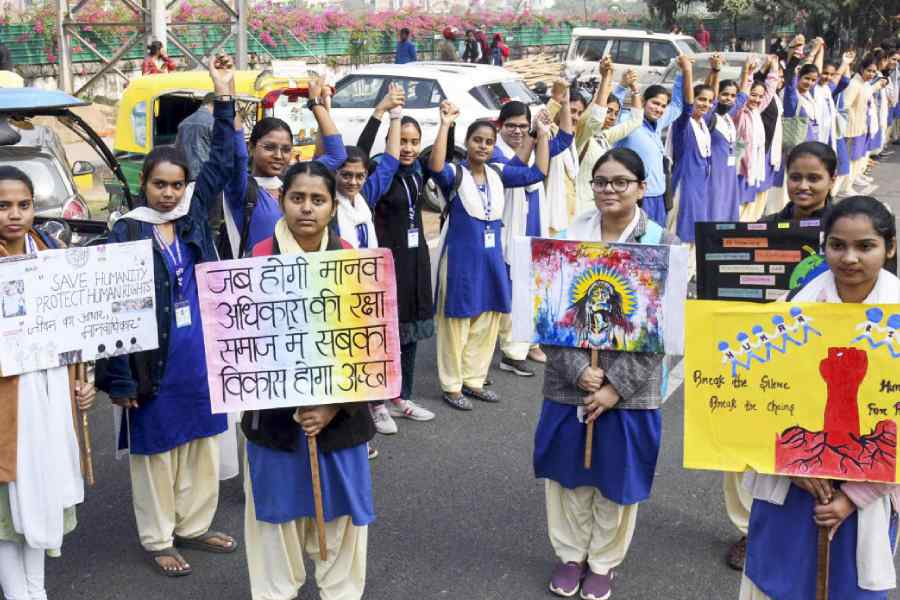Karnataka deputy chief minister D.K. Shivakumar on Tuesday clarified that he was not against a caste census but wanted it to be done scientifically and systematically, after his party chief Mallikarjun Kharge said in Parliament that "upper caste people" were united against such an exercise.
Asked about Congress president Kharge’s assertion in the Rajya Sabha on
Monday, Shivakumar told reporters in Belgaum, where the winter session of the Assembly is underway, that he has never opposed a caste census.
“All upper caste people are united on this (against a caste census),” Kharge had said in the Rajya Sabha when BJP member Sushil Kumar Modi taunted him, asking when the Karnataka government would make the report of the caste census conducted in 2015 public and pointing out that Shivakumar had signed a petition against doing so.
The then Siddaramaiah government had conducted the caste census eight years ago but subsequent governments in Karnataka did not release the report. Back in the chief minister’s chair, Siddaramaiah has been pursuing the issue with vigour.
Shivakumar had in November signed a petition prepared by the Vokkaligara Sangha, the organisation that represents the influential community, against releasing the caste census data. Higher education minister M.C. Sudhakar had also signed it.
Lingayats, the other influential community in Karnataka, have also opposed the caste census. The All India Veerashaiva Mahasabha, one of the Lingayat bodies that came out against making the caste census public, is headed by Shamanur Shivashankarappa, a veteran Congress lawmaker.
While some sub-groups among the Vokkaligas and Lingayats are backward, the larger communities are considered upper caste due to their socio-political influence.
Shivakumar on Tuesday sought to draw a distinction between opposing the caste census per se and seeking a scientific survey. “Our opinion is that a caste census should be conducted scientifically and systematically,” the Congress leader told reporters.
He denied he had ever opposed the caste census, asserting that all he wanted was it to be done systematically. “I have not opposed (it) anywhere. See, it is our party policy and our government did it (caste census) in Karnataka. My apprehension is… a lot of our legislators and a lot of our ministers… we all spoke. We want proper… because the census has to be done in a very systematic way,” Shivakumar said.
He claimed that his own house was not covered in the census conducted in 2015. “Including my own house… no one has come and asked me. I checked with so many legislators (who had a similar experience). You should have a system, because when (the) census happens, they (the people) should get the rights properly,” Shivakumar added.
The previous Congress government, also headed by Siddaramaiah, had assigned the Karnataka State Commission for Backward Classes headed by H. Kantharaj the task of undertaking a socio-economic and educational survey, better known as the caste census, during the summer of 2015.
More than 1.6 lakh enumerators had personally visited 1.3 lakh households in the state to complete the fieldwork at a cost of about Rs 170 crore. While neither H.D. Kumaraswamy, who helmed the Janata Dal Secular-Congress coalition in 2018, nor the BJP governments that followed showed any interest in it, Siddaramaiah, who started his second tenure as chief minister in May, ordered the backward classes commission to submit the report to his government by January 31, 2024.
A team of experts has since been assigned the task of scrutinising the report to allay fears of hitherto dominant communities that they would lose primacy in the socio-political sphere once the report is released.
Dalit and OBC organisations have been demanding the implementation of the caste census to give them their due share in jobs and education.











